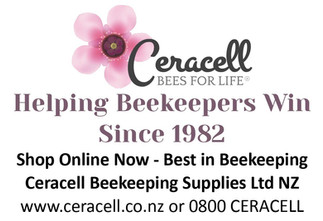Beekeeper Opinion Sought on Glyphosate Use
- Patrick Dawkins

- Jul 31, 2021
- 2 min read
New Zealand beekeepers are well aware of the ongoing debate surrounding the use of the herbicide glyphosate, and so Apiculture New Zealand (ApiNZ) is calling on all beekeepers to help them form a response to the Environmental Protection Authority’s (EPA) call for information.
The EPA is seeking public consultation on the use of glyphosate in New Zealand and the effects of glyphosate on the environment and people’s health, following ongoing debate both around the world and in New Zealand. The agency says this is the first step in deciding whether rules around its use should be changed.
ApiNZ wants to make sure beekeeper’s voices are heard on the issue, so have designed a short online survey to gain insight from apiarists to help the industry body form their response to the EPA. They hope to gain a better understanding of how the apiculture industry uses glyphosate products, its relationship with other stakeholders, such as farmers and central and local government, regarding its use, plus the economic, environment and health impact of glyphosate in the industry.
New Zealand honey has come under greater scrutiny internationally, particularly in Japan, after a story which highlighted the existence of glyphosate residues – although well under the food safety limit – made headlines in September 2020.
“We have been directly impacted by glyphosate residues in honey, so it is important that we get a sense of how we can contribute towards directing any policy,” ApiNZ chief executive Karin Kos says.
“The EPA is very clear; their consultation is about understanding use. I think we can help that debate by understanding use within our own industry, but we also need to make them very aware about the economic impact of glyphosate use.
“I think landowners and councils are more aware of the situation and are up for talking more with beekeepers about their use of glyphosate, but this is a first step to understanding use in New Zealand.”
By completing the survey beekeepers are not just helping shape ApiNZ’s submission to the EPA, but also providing information to help educate the industry body going forward, Kos says.
While the ApiNZ survey is more concise than the EPA’s online form, beekeepers have the option of providing information direct to the EPA, through ApiNZ’s survey, or both.
The deadline for completing ApiNZ’s survey is Wednesday August 11 and it can be found here.
Information can be provided direct to the EPA here, with a deadline of 5pm Friday August 27.

















Comments